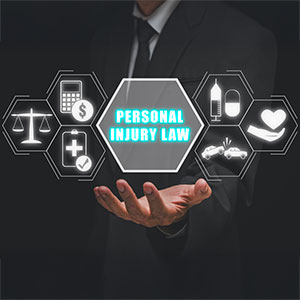Walgreens Sued for Forcing Customer to Clean Bathroom
Personal InjuryA lawsuit against Walgreens alleges that a customer, Fernando Elizarraras, was forced by store employees to clean a soiled bathroom after using it at an store in Orlando, Florida. The original lawsuit (Case Number 2016-CA-009159, filed in the Ninth Judicial Circuit for Orange County, Florida) filed October 14, 2016 in Orange County and removed to federal court (Case Number 6:16-cv-02093, US District Court, Middle District of Florida, Orlando Division) on December 5, 2016. News reports indicate that Walgreens has made a $500,000 offer on the case but the case has not settled.
False Imprisonment
The lawsuit was brought by the surviving spouse, Maria Elizarraras as personal representative, and alleges false imprisonment, intentional infliction of emotion distress, and wrongful death. In Florida, false imprisonment occurs when a person is restrained without consent or legal justification. An illegal restraint of a person’s freedom of movement occurs when words or actions are used to get a person to submit. The words or actions need not be a physical threat and the person does not need to actually be confined. If the person believes that they are being confined, then that is enough to commit the tort of false imprisonment.
Shopkeeper’s Privilege Does Not Apply
Most false imprisonment cases involve an unlawful arrest or detention by law enforcement. There are also occasions where a merchant is sued for false imprisonment when their actions fall outside the protections of the so-called “shopkeeper’s privilege.” The shopkeeper’s privilege permits a merchant to detain a person who the merchant has reasonable suspicion to believe that has stolen something or caused damage to their business. In this particular instance, merely using the restroom, even if messy but still within the confines of decent behavior, the merchant would have no right to force a customer to engage in labor and doing so would constitute a false imprisonment under Florida law. While there is no report of vulgar actions by Elizarraras, if there was evidence that he intentionally created a mess in the restroom, then he would have been committing a crime of damaging the property and the merchant’s privilege would therefore apply until the arrival of law enforcement.
Intentional Infliction of Severe Emotional Distress
In Florida, you can be sued for civil damages if you commit an outrageous act that is intentional or reckless. In Dominguez v. Equitable Life Assurance Society of U.S., 438 So. 2d 58 (Fla. 3rd DCA 1983), elements of intentional infliction of emotional distress were laid out as:
- conduct that is intentional or reckless and intended in a way that is either known or should be known that emotional distress is likely;
- conduct that is so outrageous that it is odious and intolerable in a civilized community;
- the conduct caused emotional distress to the plaintiff; and
- the resulting emotional distress was severe.
A claim for intentional infliction of emotional distress in this case may be based on mean or derogatory things that store employees may have said to Mr. Elizarraras or things that the employees may have asked him to do.
Wrongful Death
In order to be regarded as a wrongful death action in Florida, the conduct involved must specifically be the cause of death. From my experience, I personally find it hard to believe that emotional distress was a direct cause of death, and therefore a legal or proximate cause of death. Instead, I think the proper legal result is that there was a significant amount of emotional damages that occurred during Mr. Elizarraras’ lifetime before he died. The value of that damage is significant because of instead of dying in peace, it can be argued that Mr. Elizarraras died while experiencing great emotional difficulties over the event, but again, the emotional difficulties themselves likely did not cause the death. In Florida, the estate can bring a claim for damages that were caused during the plaintiff’s lifetime. This is known as a survival action.
Consult an Attorney if You Have Been Intentionally Wronged
If you or someone you know has been the victim of an intentional tort or conduct that is outrageous, please consult a Central Florida personal injury attorney for a free case review. If we believe that we can help you with your case, then we certainly will. If we believe that you do not have a case, or one that is not going to be financially productive, then we will tell you that as well. Either way, it does not hurt to ask for help.


